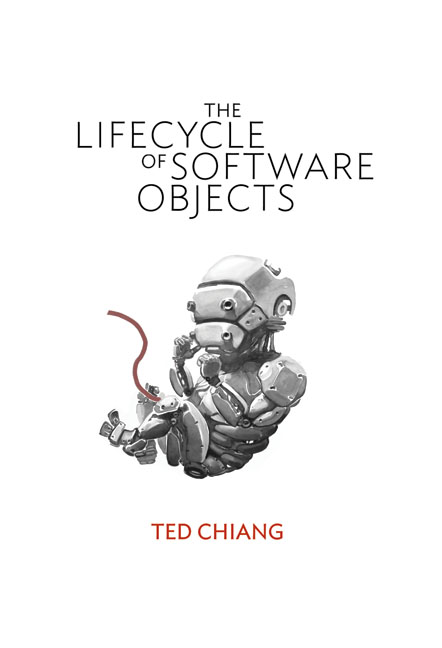
What's the best way to create artificial intelligence? In 1950, Alan Turing wrote, "Many people think that a very abstract activity, like the playing of chess, would be best. It can also be maintained that it is best to provide the machine with the best sense organs that money can buy, and then teach it to understand and speak English. This process could follow the normal teaching of a child. Things would be pointed out and named, etc. Again I do not know what the right answer is, but I think both approaches should be tried." The first approach has been tried many times in both science fiction and reality. In this new novella, at over 30,000 words, his longest work to date, Ted Chiang offers a detailed imagining of how the second approach might work within the contemporary landscape of startup companies, massively-multiplayer online gaming, and open-source software. It's a story of two people and the artificial intelligences they helped create, following them for more than a decade as they deal with the upgrades and obsolescence that are inevitable in the world of software. At the same time, it's an examination of the difference between processing power and intelligence, and of what it means to have a real relationship with an artificial entity.
Author

Ted Chiang is an American speculative fiction writer. His Chinese name is Chiang Feng-nan. He graduated from Brown University with a Computer Science degree. He currently works as a technical writer in the software industry and resides in Bellevue, near Seattle, Washington. He is a graduate of the noted Clarion Writers Workshop (1989). Although not a prolific author, having published only eleven short stories as of 2009, Chiang has to date won a string of prestigious speculative fiction awards for his works: a Nebula Award for "Tower of Babylon" (1990), the John W. Campbell Award for Best New Writer in 1992, a Nebula Award and the Theodore Sturgeon Memorial Award for "Story of Your Life" (1998), a Sidewise Award for "Seventy-Two Letters" (2000), a Nebula Award, Locus Award and Hugo Award for his novelette "Hell Is the Absence of God" (2002), a Nebula and Hugo Award for his novelette "The Merchant and the Alchemist's Gate" (2007), and a British Science Fiction Association Award, a Locus Award, and the Hugo Award for Best Short Story for "Exhalation" (2009). Chiang turned down a Hugo nomination for his short story "Liking What You See: A Documentary" in 2003, on the grounds that the story was rushed due to editorial pressure and did not turn out as he had really wanted. Chiang's first eight stories are collected in "Stories of Your Life, and Others" (1st US hardcover ed: ISBN 0-7653-0418-X; 1st US paperback ed.: ISBN 0-7653-0419-8). His novelette "The Merchant and the Alchemist's Gate" was also published in The Magazine of Fantasy and Science Fiction. As of 2013, his short fiction has won four Nebula Awards, three Hugo Awards, the John W Campbell Award, three Locus Awards, the Theodore Sturgeon Memorial Award, and the Sidewise Award. He has never written a novel but is one of the most decorated science fiction writers currently working.